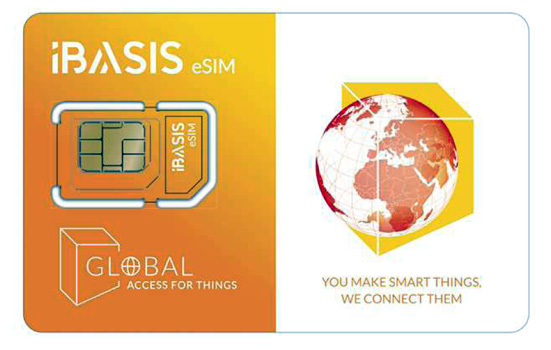Could eSIM be the answer to global IoT?
- April 28, 2020
- imc

Embedded SIMs, or eSIMs, could solve the problem of deploying an IoT service globally, according to Ajay Joseph, CTO of iBasis, speaking at last week’s IMC Industrial IoT Online Summit.
He gave the example of a car company that ships vehicles to all areas of the world and thus has to deal with maybe 50 to 70 different mobile network operators. Even within one country, especially the larger countries, one operator may not cover the entire country.
An eSIM looks and feels like a regular SIM but it is not. An eSIM can be programmed remotely with the credentials of the operator. This means that in the above example the car maker could ship the same eSIM in all the vehicles wherever they are going and then adapt them later to the individual mobile operator.
“Think of it as an open and unlocked eSIM,” said Joseph. “If an operator does not have particular coverage, it will have the ability to move to a different operator.”
For the car buyers, they will get a vehicle that has an eSIM containing a combination of operator profiles. Also, profiles can be downloaded to the eSIM later.
Security is obviously important with this arrangement. With the eSIM, security is available all the way from the device to the cloud with end-to-end encryption.
“This takes away the concerns that a lot of organisations have of the data being snooped upon,” said Joseph.
He went on to talk about the benefits 5G would bring to this space, comparing it with the existing 4G, the big one being a rise in data rate from 100Mbit/s to 2Gbit/s. Also with 4G the typical latency is 10ms and this drops to 1ms with 5G.
This enables use cases in three key areas. First is massive IoT, for applications in smart cities, logistics and utilities. The second area is critical communications, where tight latency is needed such as for autonomous vehicles, smart grid and factory automation. The third area is enhanced mobile broadband, making use of the data rate for video conferencing, augmented reality and 3D video.
“The eSIM that we have is ready today,” concluded Joseph.
Tofane Global, which acquired iBasis last year, earlier this month also took over Portuguese operator NOS International Carrier Services. The company will be consolidated under the iBasis brand. IBasis will be the preferred partner for all NOS international voice, SMS, IPX services and mobile data.
• Dejan Rasuo, director of global strategic IoT alliances at Tata Communications, said there were a number of common misconceptions concerning eSIMs. This included the GSMA eSIM standardisation not guaranteeing scalability or uptake, that the market employed old business models that had failed and that outsiders, rather than long-standing players, were best positioned to make use of the technology.
“The GSMA did a great job with the standard,” he said.





